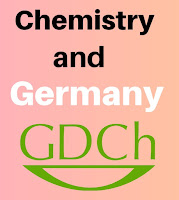Posts
Showing posts with the label Development of chemistry in Germany
Contributions of Germany towards the field of Chemistry
- Get link
- X
- Other Apps
By
K. Pratap
-

"German Chemistry: A Legacy of Innovation and Discovery" The development of chemistry in Germany spans centuries, marked by significant contributions, pioneering discoveries, and institutional advancements. Beginning in the early modern period with the practice of alchemy, German chemists such as Hennig Brand made seminal discoveries like phosphorus, laying foundational groundwork for the scientific study of matter. Throughout the Enlightenment, figures like Friedrich Hoffmann played pivotal roles in shaping chemistry as a distinct discipline. The 19th century witnessed the emergence of organic chemistry, propelled by the groundbreaking work of Justus von Liebig and Friedrich Wohler, who synthesized urea from inorganic compounds. The Industrial Revolution further propelled German chemistry, with advancements in dye production by Adolf von Baeyer and pharmaceuticals. The establishment of leading universities and research institutes, including the Univer...